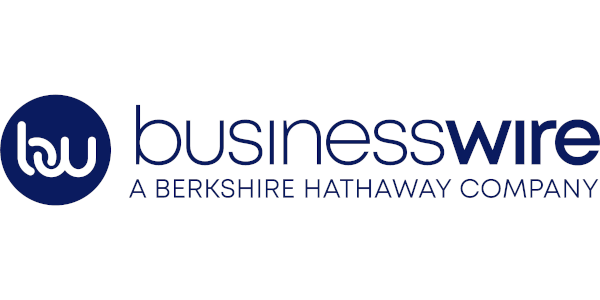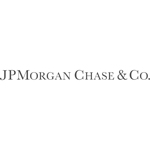Despite a subdued economic outlook, businesses remain confident in themselves and most expect to thrive
NEW YORK–(BUSINESS WIRE)–Amidst an unprecedented global pandemic and disruptions to the economy, more than 1 in 2 business leaders (53%) expect their companies to return to normal in the next 12 months, according to JPMorgan Chase’s Business Leaders Outlook Pulse Survey released today. The majority of business leaders remain hopeful in the face of adversity: while most (83%) are running at a reduced capacity, 68% are confident their businesses will thrive and just 2% are concerned their businesses may not survive.
Looking ahead to the next six months, more than half of business leaders (56%) are optimistic about their companies, but confidence dwindles on broader levels. Approximately one in three respondents are optimistic about the local economy (33%) and national economy (35%), while confidence in the global economy is considerably lower at 17%.
“It’s been incredible to witness the resilience, flexibility and innovation of America’s businesses during an extraordinarily difficult year for all people around the world,” said Jim Glassman, head economist, JPMorgan Chase Commercial Banking. “From speaking with business leaders across the country, it’s clear that some of the most agile companies are gaining market share, particularly in industries like technology and e-commerce.”
As a result of this year’s disruptions, these are the top five actions business leaders are taking:
- Conserving capital for unforeseen needs: Most business leaders (87%) have already built up their cash reserves or plan to do so in the next three months. Not surprisingly, 71% have either reduced their spending on capital expenditures or are planning to do so.
- Learning from the crisis: With continued uncertainty around economic conditions and a potential second wave of COVID-19, 82% of businesses have already prepared or are planning to prepare for a similar event in the future.
- Managing business finances digitally: The majority of business leaders (59%) have either already increased or plan to increase their use of digital banking and treasury management tools to manage cash flow, send and receive payments, and streamline operations.
- Implementing permanent changes to operating models: As a result of implementing remote working capabilities, more than half (56%) of business leaders have already made permanent changes to their operating models or plan to do so in the next three months.
- Shifting the business online: More than half (54%) of business leaders have also shifted their operating models to be more online or plan to do so, as a result of pandemic-related closures and shifting consumer habits.
While many business leaders are cautiously optimistic about the future, they’re faced with the realities of an unpredictable operating environment. Their top three challenges are:
- Uncertain economic conditions: The vast majority of business leaders surveyed (70%) cited economic uncertainty – both domestically and globally – as the leading challenge facing their business operations.
- Revenue and sales growth: 59% of business leaders are concerned about growing sales, though with certain industries seeing an uptick in demand, 47% reported that they’re expecting an increase in revenue and sales within the next six months.
- Shifting consumer habits due to COVID-19: The pandemic accelerated a behavioral shift of consumers leaning in to e-commerce technology for purchasing, in addition to spending more conservatively overall. Changing consumer habits is a leading concern for 33% of business leaders.
Businesses should keep the following considerations top-of-mind in navigating the remainder of the year:
- Harness the power of workplace technology. COVID-19 has accelerated the evolution of remote working, and now is the time for businesses to implement digital tools to enhance productivity. Learn more here.
- Enhance digital security protocols. Business email compromise (BEC) is among the most serious threats that face businesses – particularly in times of crisis. Learn how to prevent BEC and other types of fraud here.
- Proactively prepare for future disruption. Recent events have reinforced that businesses across industries and of all sizes should have solid business resiliency plans in place before crises happen. Learn more here.
For more information on the 2020 Business Leaders Outlook Pulse Survey, please visit jpmorgan.com/2020-midyear-outlook.
Survey Methodology
JPMorgan Chase’s Business Leaders Outlook survey was conducted online from June 22-29, 2020 for middle market companies with annual revenues between $20 million and $100 million. In total, 524 business leaders in various industries across the U.S. participated in the survey. The results of this survey are within statistical parameters for validity, and the error interval is +/-4.3% at a 95% confidence level.
About JPMorgan Chase Commercial Banking
JPMorgan Chase Commercial Banking is a business of JPMorgan Chase & Co. (NYSE: JPM), a leading global financial services firm with assets of $3.1 trillion and operations worldwide. Through its Middle Market Banking & Specialized Industries, Corporate Client Banking & Specialized Industries and Commercial Real Estate businesses, Commercial Banking serves emerging startups to middle market and large corporations, as well as government entities, not-for-profit organizations, and commercial real estate, developers and owners. Clients are supported through every stage of growth to navigate opportunities and challenges throughout the economic cycle with industry expertise and tailored financial solutions, including credit and financing, treasury and payment services, international banking and more. For more information, go to www.jpmorganchase.com/commercial.
Contacts
Media Contact: Janet Yoo: janet.h.yoo@chase.com






